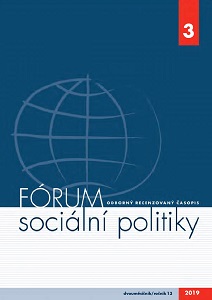Náklady práce ve státech Evropské unie v letech 2006-2016
Labour costs in European Union member states in the period 2006−2016
Author(s): Vlastimil BeranSubject(s): Labor relations, Economic development, Transformation Period (1990 - 2010), Present Times (2010 - today), EU-Accession / EU-DEvelopment
Published by: Výzkumný ústav práce a sociálních věcí
Keywords: Labour costs; European Union; member states; period 2006−2016;
Summary/Abstract: The process of European integration promised an economic partnership and the close cooperation of EU member states in competition with the rest of the world. At the time of accession negotiations, this economic integration process was compared to the micro-enterprise employee model according to which the internal competition would be as fierce as that with the outside world. It was supposed that the internal competition element would benefit from the accession of new member states in 2004 and would result in the convergence of economically weaker countries with richer states. With respect to the weaker countries, growth was expected in terms of productivity, business size and wages accompanied by an improvement in the standard of living of the population so as to match that of the original European Union countries. In other words, the economic indicators of the 2004 accession countries would converge with those of older, wealthier EU members. In addition, it was supposed that competition would initiate the levelling of economic conditions in the post-2004 countries. Thus, labour cost indicators are employed in order to determine to what extent these processes actually occurred over the ten-year period.
Journal: Fórum sociální politiky
- Issue Year: 2019
- Issue No: 3
- Page Range: 24-29
- Page Count: 6
- Language: Czech

